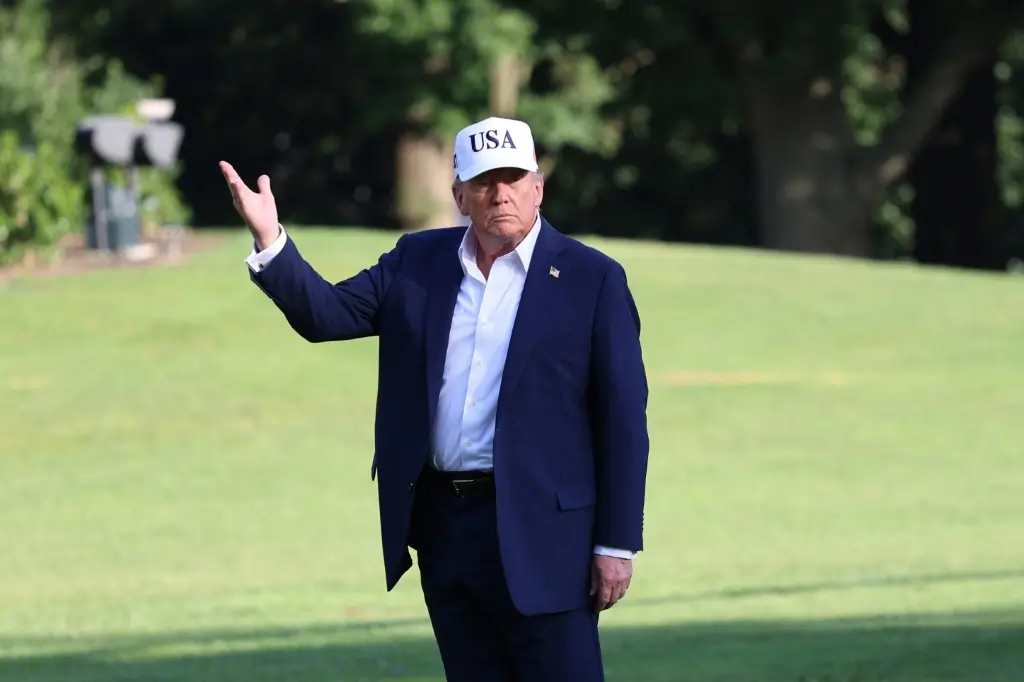
The EU can breathe a sigh of relief for now after an extension in the US tariff dispute – but 14 countries must expect high tariff increases. US President Donald Trump extended the deadline, which was due to expire on Wednesday, for the European Union and other trading partners by signing a decree on Monday (local time) until August 1. According to the White House, high punitive tariffs will then take effect – unless a "deal" is reached beforehand. Trump announced surcharges of up to 40 percent for 14 countries from Japan to Myanmar.
Following the extension, Trump intends to inform the affected countries in writing next month which tariff rates would be due starting in August - "or deals will be made and these countries will continue to negotiate with the United States," said Trump spokeswoman Karoline Leavitt. Trump himself again left some leeway regarding the new deadline. Asked whether August 1 was a set date, Trump told reporters at a dinner with Israeli Prime Minister Benjamin Netanyahu on Monday evening: "I would say that's set, but not 100 percent set."
Trump published a total of 14 warning letters on his online service, Truth Social. According to these, Japan, South Korea, Malaysia, Kazakhstan, and Tunisia will face US tariffs of 25 percent each starting in August. He announced tariff increases of between 30 and 36 percent for South Africa, Bosnia-Herzegovina, Indonesia, Serbia, Bangladesh, Cambodia, and Thailand, and even 40 percent for Laos and Myanmar.
In the nearly identical letters, the president criticized these countries' trade relations with the United States for being "far from balanced." He pointed out that the United States imported more products than it exported to these countries. However, he added that the higher tariffs could "perhaps" still be avoided if concessions were made in the trade dispute.
On Monday evening, Trump emphasized that the letters were "final," but if the affected states "call with another offer and I like it, then we'll do it."
On New York's Wall Street, major indices closed lower following Trump's announcements. The Dow Jones, the S&P 500, and the technology-focused Nasdaq each lost up to 0.9 percent. The losses weren't even greater because many stockbrokers considered Trump's new tariff announcements to be negotiating tactics, said analyst Steve Sosnick of the online platform Interactive Brokers.
Trump sent his letters shortly before the Tuesday deadline he had set for numerous trading partners to reach an agreement. For the EU, the deadline was originally set for Wednesday, after which, according to Trump's earlier statements, a 50 percent surcharge would have been imposed.
The president sparked the tariff dispute with numerous trading partners at the beginning of April. Trump initially announced high import surcharges for numerous countries, but after a strong reaction in the financial markets, he lowered them to a base rate of 10 percent. At the same time, he announced a 90-day "pause" in negotiations, which was now supposed to expire.
The EU Commission had previously stated that it was aiming for at least an agreement in principle with the US government by Wednesday. EU Commission President Ursula von der Leyen spoke with Trump on the phone on Sunday. She had a "good exchange" with the US president, a Commission spokesperson said on Monday.
In Berlin, government spokesman Stefan Kornelius said that "a solution is being sought." "The talks are not yet concluded," he continued. Chancellor Friedrich Merz (CDU) is "in close coordination with the European partners and the Commission." Currently, European imports into the US are generally subject to a basic tariff of 10 percent, excluding medicines and other pharmaceutical products. Cars are subject to an increased tariff of 25 percent, and steel and aluminum products are subject to a tariff as high as 50 percent.
In addition, following criticism of his trade policy from the BRICS countries, Trump threatened to impose additional surcharges on any country that aligns itself with the alliance. "Any country that aligns itself with the anti-American policies of the BRICS (countries) will be subject to an additional 10 percent surcharge," he wrote in another post on Truth Social.